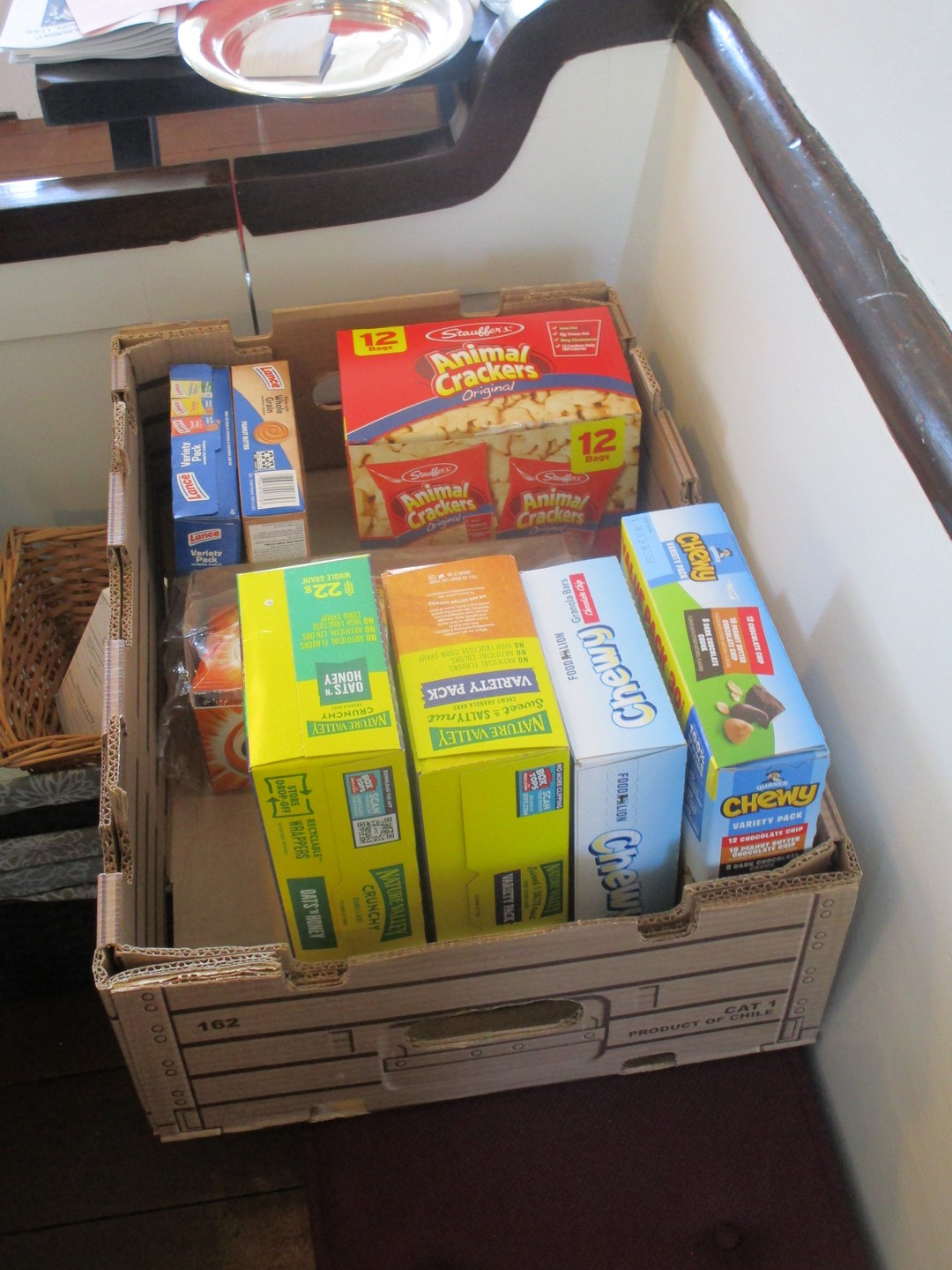Click here to view in a new window.
2023 Sun Nov 12
Videos, Pentecost 24 Sunday, Nov. 12, 2023
1. Prelude
2. Opening Hymn – “Judge Eternal, Throned in Splendor”
3. Hymn of praise – “How Wondrous and Great”
Snacks for Bowling Green Elementary
Please bring some snacks for Bowling Green Elementary by Nov. 12. A number of students are coming to school hungry. Here is what we had collected by Nov. 5:

Matthew’s Bridesmaid story – Some background on Jewish weddings

The Way of Jewish weddings!The groom and his family gather at their household (married couples tended to remain living with the groom’s parents for as long as the parents survived). The bride and her family and guests gather at her household.
The groom and his family make their way to the bride’s house to collect the bride to escort the bride to his father’s house. The dowry had to be agreed Last minute haggling between the groom and his father-in-law over the dowry was commonplace. Such haggling symbolized the esteemed value of the bride, but many times delayed the wedding.
The wedding party would take the longest route through the village to finally arrive at their home. The more houses they visited, the more well-wishes (and gifts) they received. You didn’t want to leave one home out because no one wanted ill feelings on a wedding day. That could bring bad fortune. This day was an opportunity to reach out to break down some old barriers and to be generous to the poor or forgotten. Along the way there would be much jovial visiting and exuberant hospitality.
As a result no one ever knew when the wedding party would show up at their home (where the final festivities occurred).
At this time, town criers would proclaim the arrival of the groom. Such proclamations alerted those who did not stay at the bride’s house or who waited for the ceremony to begin. Since this was an all-night celebration, napping between events in the wedding was reasonable.
One thing we need to remember about Christ’s era was that there were no street lamps. Therefore, the role of the bridesmaids was more than a cultural display of symbolism. Their lamps lit the path home for the wedding party and all the attendees. It is also important to revisit that God chose to have his Son to be born in an occupied country. The law of that time allowed no one to be on the street after dark without a lamp. To find yourself in that situation was to risk arrest—particularly for these residents of an occupied territory. The great sadness is that it is still that way in many parts of Palestine.
The Bridesmaids would literally provide legitimacy to the homecoming party so they would be safe from the occupying government. They would have to provide their own lamps. Without their lights, the party would look like an insurrection or a mob disguised in wedding attire. Certain religious zealots would have undoubtedly thought of using just such a ploy to attack the Romans.
Having your lamps ready would provide for both the safety and direction of the wedding party. To be ill prepared for the arrival of the wedding party wasn’t just a social faux pas, it meant exposing the entire wedding party to Roman attack.
Because of the political climate and the dangers of the time, once the Host’s gates were shut that is how they would remain. Furthermore, if you truly cared about a family you would not expose them to the risk of a knock on the door in the middle of the night.
Missing a wedding party would be a great loss. There was not a whole lot to celebrate for the masses of impoverished workers in Christ’s day. So a wedding was a grandiose affair generally lasting from the close of one Sabbath to the beginning of the next.
During that week all stops were pulled out and for one short week of their life the bride and groom were called prince & princess. In a life of oppressive drudgery and servitude this was their moment in the sun and everyone shared in their joy.
Photos, Patawomeck Village tour, Nov. 8, 2023, Sacred Ground
Tour notes are here
St. Peter’s Sacred Ground group had a wonderful fall tour of the Patawomeck Indian settlement just east of Fredericksburg on Route 17 on Nov. 8, 2023. The goal of the visit was to understand their history and culture as well as our role as well. They are one of 11 tribes recognized by Virginia.
There is the 1915 home originally owned by Duff Green that has two rooms of history plus an outside village that opened just this year in July. It is a “work in progress”. The tribe did most of the work to repair the house and create the village.
The tribe originally settled in North Stafford but moved south when Quantico took some of the land. The Indians played a major role in helping the Jamestown colony survive during the winter of 1609-1610 (“the starving time”). Unfortunately, the English did not return the favor but pushed them out. A group settled near us in Port Royal from 1750 to 1820 when they then moved to the Little Falls area of Stafford County and coalesced. There are 2,500 in the tribe today. Thanks to Brad Hatch, a member of tribe and Tribal Council for his tour. An excellent tour and definitely a site worth visiting!
Visual Lectionary Vanderbilt, Pentecost 24 Nov. 12, 2023
Click here to view in a new window.
